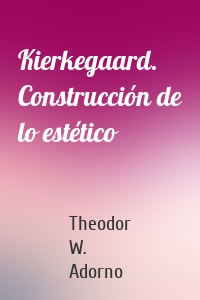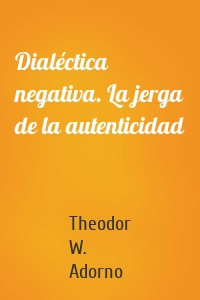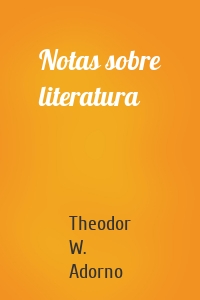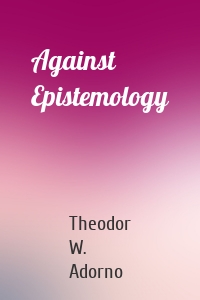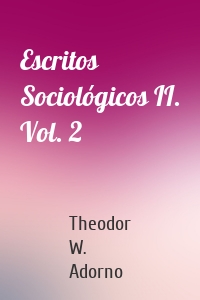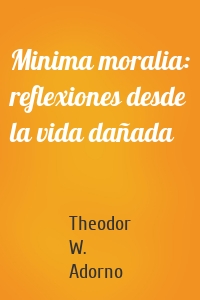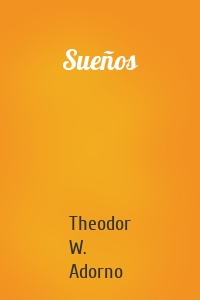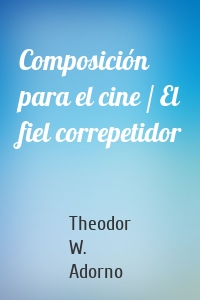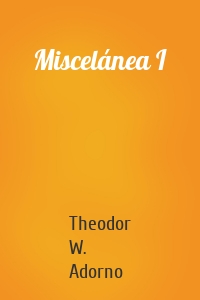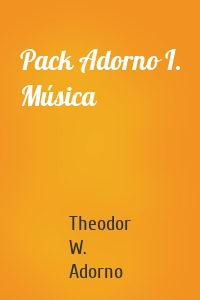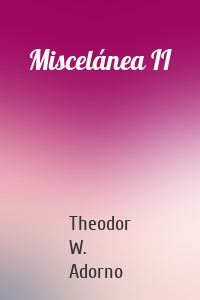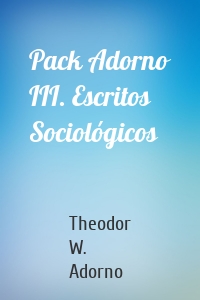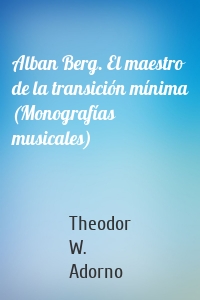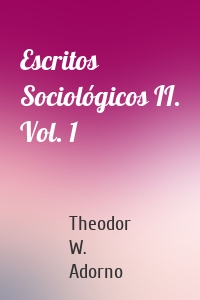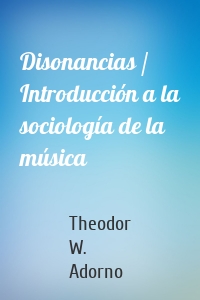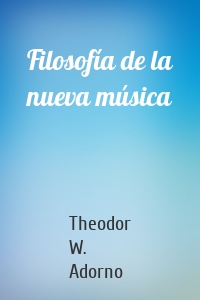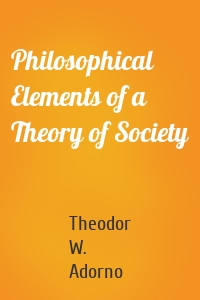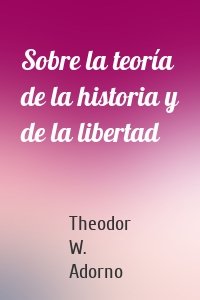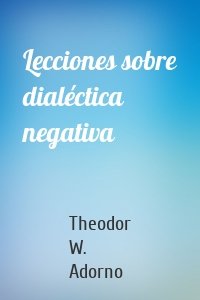Theodor W. Adorno
22 кн.
Against Epistemology
This classic book by Theodor W. Adorno anticipates many of the themes that have since become common in contemporary philosophy: the critique of foundationalism, the illusions of idealism and the end of epistemology. It also foreshadows many of the key ideas that were developed by Adorno in his most important philosophical works, including Negative Dialectics. Against Epistemology is based on a manuscript Adorno originally wrote in Oxford in 1934-37 during his first years in exile and...
| Автор | Theodor W. Adorno |
Philosophical Elements of a Theory...
As an exile in America during the War, Theodor Adorno grew acquainted with the fundamentals of empirical social research, something which would shape the work he undertook in the early 1950s as co-director of the Frankfurt Institute for Social Research. Yet he also became increasingly aware of the ‘fetishism of method’ in sociology, and saw the serious limitations of theoretical work based solely on empirical findings. In this lecture course given in 1964, Adorno develops a critique of both...
| Автор | Theodor W. Adorno |
Sobre la teoría de la historia y de...
Durante la redacción de la Dialéctica negativa, su gran obra teórica, Adorno dedicó buena parte de su tarea docente a discutir las problemáticas del libro cuya elaboración le tomó siete años. Estas clases son el reflejo de un profundo diálogo crítico que el autor establece con la tradición alemana, Kant y Hegel, en torno a la filosofía de la historia y a la posibilidad de la libertad humana. A estas dos clásicas preguntas de la mayor dignidad, según sus palabras, está dedicada la segunda mitad...
| Автор | Theodor W. Adorno |
Lecciones sobre dialéctica negativa
La filosofía, según declara el inicio de Dialéctica negativa, sigue en vida porque se perdió el instante de su realización. Debía dejar de interpretar el mundo y pasar a cambiarlo, y no lo logró. Esto abre al menos dos preguntas, que rondarán las presentes lecciones –traducidas por primera vez al español– tanto como el libro llamado Dialéctica negativa, que Adorno terminaba de redactar por entonces, en 1966. ¿Cómo es posible aún la filosofía? ¿Cómo concebirla tras aquel fracaso de hacerla...
| Автор | Theodor W. Adorno |
The New Music
A year after the end of the Second World War, the first International Summer Course for New Music took place in the Kranichstein Hunting Lodge, near the city of Darmstadt in Germany. The course, commonly referred to later as the Darmstadt course, was intended to familiarize young composers and musicians with the music that, only a few years earlier, had been denounced as degenerate by the Nazi regime, and it soon developed into one of the most important events in contemporary music. Having...
| Автор | Theodor W. Adorno |


